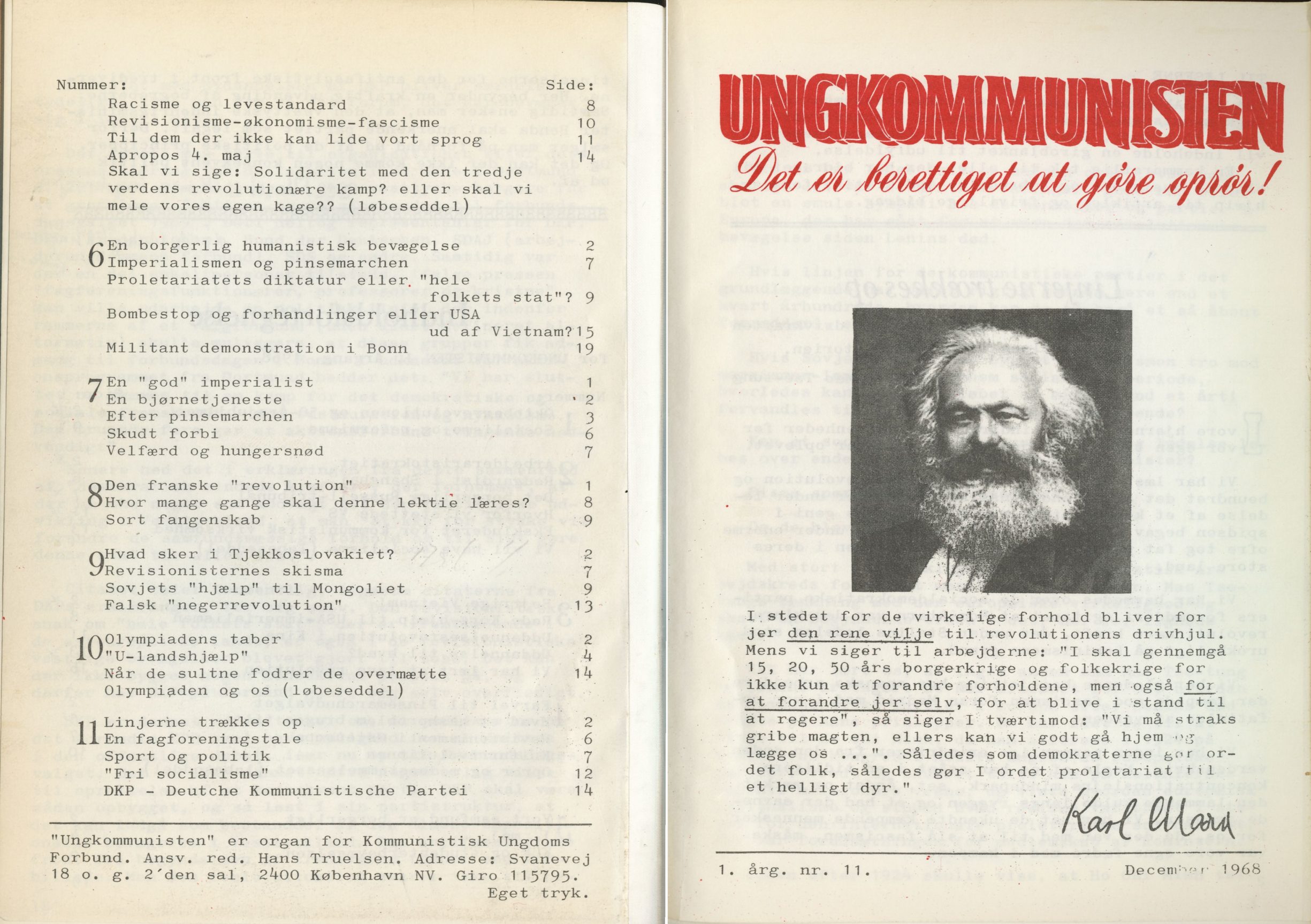(Extract)
About the Text:
From: On Colonies, Industrial Monopoly and Working Class Movement, Futura, 1972, 57 p., p. 17-19.
Written on 10th June 1853,
published in “The New York
Daily Tribune” on 25th June 1853.
… All the civil wars, invasions, revolutions, conquests, famines, strangely complex, repid and destructive as the successive action in Hindostan may appear, did not go deeper than its surface. England has broken down the entire framework of Indian society, without any symptoms of reconstitution yet appearing. This loss of his old world, with no gain of a new one, imparts a particular kind of melancholy to the present misery of the Hindoo, and separates Hindostan, ruled by Britain, from all its ancient traditions, and from the whole of its past history. …
However changing the political aspect of India’s past must appear, its social condition has remained unaltered since its remotest antiquity, until the first decennium of the 19th century. The handloom and the spinning-wheel, producing their regular myriads of spinners and weavers, were the pivots of the structure of that society. … It was the British intruder who broke up the Indian hand-loom and destroyed the spinning-wheel. England began with driving the Indian cottons from the European market; it then introduced twist into Hindostan and in the end inundated the very mother country of cotton with cottons. From 1818 to 1836 the export of twist from Great Britain to India rose in the proportion of 1 to 5,200. In 1824 the export of British muslin to India hardly amount to 1,000,000 yards, while in 1837 it surpassed 64,000,000 of yards. But at the same time the population of Dacca decreased from 150,000 inhabitants to 20,000. This decline of Indian towns celebrated for their fabrics was by no means the worst consequence. British steam and science uprooted, over the whole surface of Hindostan, the union between agricultural and manufacturing industry.
These two circumstances – the Hindoo, on the one hand, leaving, like all Oriental peoples, to the central government the care of the great public works, the prime condition of his agriculture and commerce, dispersed, on the other hand over the surface of the country, and agglomerated in small centres by the domestic union of agricultural and manufacturing pursuits – these two circumstances had brought about, since the remotest times, a social system of particular features – the so-called village system, which gave to each of these small unions their independent organisation and distinct life…
These small stereotype forms of social organism have been to the greater part dissolved, and are disappearing, not so much through the brutal interference of the British tax-gatherer and the British soldier, as to the working of English steam and English free trade. Those family-communities were based on domestic industry, in that peculiar combination of hand-weaving, hand-spinning and hand-tilling agriculture which gave them self-supporting power. English interference having placed the spinner in Lancashire and the weaver in Bengal, or sweeping away both Hindoo spinner and weaver, dissolved these small semi-barbarian, semi-civilised communities, by blowing up their economical basis, and thus produced the greatest, and to speak the truth, the only social revolution ever heard of in Asia.
Now, sickening as it must be to human feeling to witness those myriads of industrious patriarchal and inoffensive social organisations disorganised and dissolved into their units, thrown into a sea of woes, and their individual members losing at the same time their ancient form of civilisation, and their hereditary means of subsistence, we must not forget that these idyllic village communities, inoffensive though they may appear, had always been the solid foundation of Oriental despotism, that they restrained the human mind within the smallest possible compass, making it the unresisting tool of superstition, enslaving it beneath traditional rules, depriving it of all grandeur and historical energies. We must not forget the barbarian egotism which, concentrating on some miserable patch of land, had quietly witnessed the ruin of empires, the perpetration of unspeakable cruelties, the massacre of the population of large towns, with no other consideration bestowed upon them than on natural events, itself the helpless prey of any aggressor who deigned to notice it at all. We must not forget that this undignified, stagnatory, and vegetative life, that this passive sort of existence evoked on the other part, in contradistinction, wild, aimless, unbounded forces of destruction and rendered murder itself a religious rite in Hindostan. We must not forget that these little communities were contaminated by distinctions of caste and by slavery, that they subjugated man to external circumstances instead of elevating man to be the sovereign of circumstances, that they transformed a self-developing social state into never changing natural destiny, and thus brought about a brutalising worship of nature, exhibiting its degradation in the fact that man, the sovereign of nature, fell down on his knees in adoration of Kanuman, the monkey, and Sabbala, the cow.
England, it is true, in causing a social revolution in Hindostan, was actuated only by the vilest interests, and was stupid in her manner of enforcing them. But that is not the question. The question is, can mankind fulfil its destiny without a fundamental revolution in the social state of Asia? If not, whatever may have been the crimes of England she was the unconscious tool of history in bringing about that revolution. …
—–
MESW Vol. 1, p. 313-317.
MEOC p. 35-41.
MEOB p. 391-398.
The complete text can be found online at Marxist Internet Archive, MIA.



























